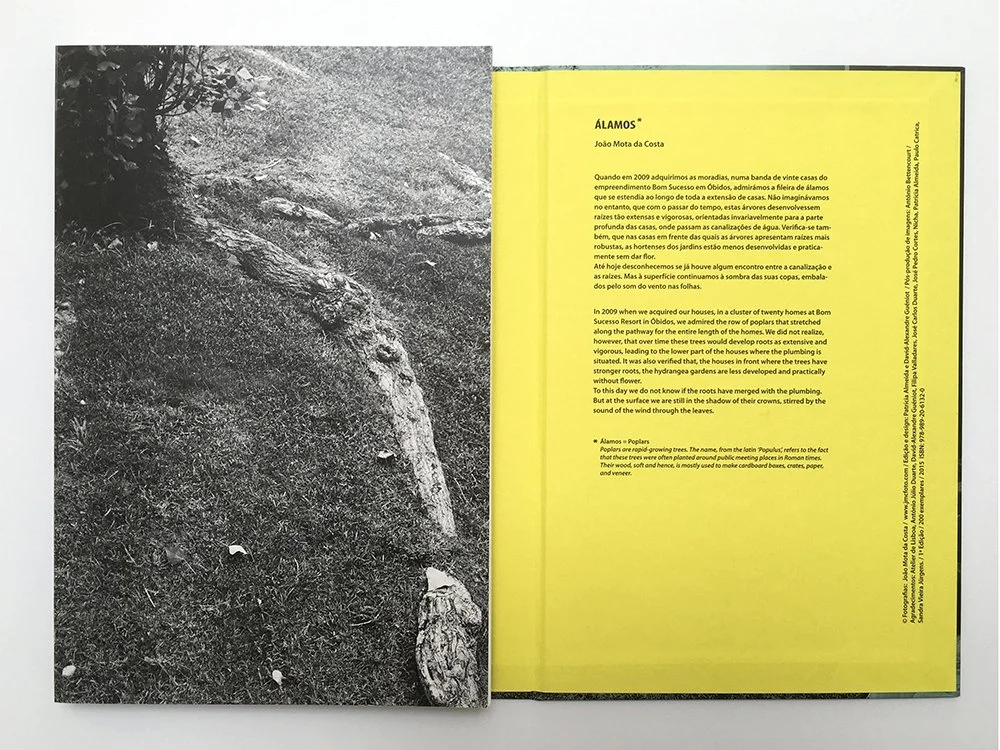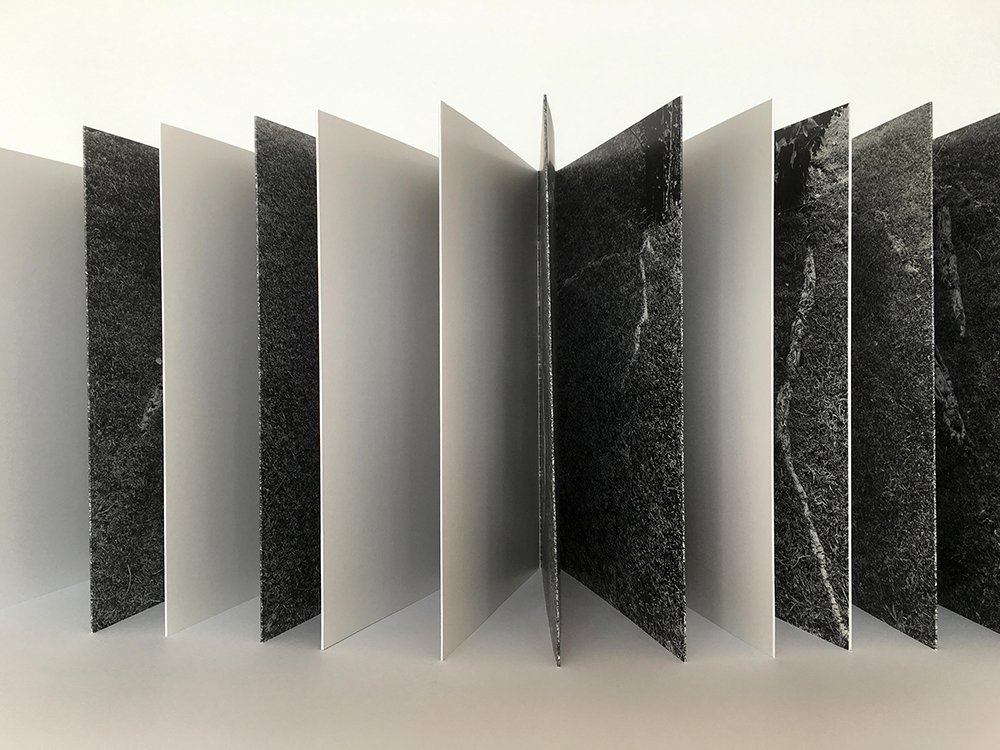 Image 1 of 6
Image 1 of 6

 Image 2 of 6
Image 2 of 6

 Image 3 of 6
Image 3 of 6

 Image 4 of 6
Image 4 of 6

 Image 5 of 6
Image 5 of 6

 Image 6 of 6
Image 6 of 6







Álamos / João Mota da Costa
In 2009 when I acquired our houses, in a cluster of twenty homes at Bom Sucesso Resort in Óbidos, we admired the row of poplars that stretched along the pathway for the entire length of the homes. We did not realize, however, that over time these trees would develop roots as extensive and vigorous, leading to the lower part of the houses where the plumbing is situated. It was also verified that, the houses in front where the trees have stronger roots, the hydrangea gardens are less developed and practically without flower.
To this day we do not know if the roots have merged with the plumbing. But at the surface we are still in the shadow of their crowns, stirred by the sound of the wind through the leaves.
* Álamos = Poplars
Poplars are rapid-growing trees. The name, from the latin 'Populus', refers to the fact that these trees were often planted around public meeting places in Roman times. Their wood, soft and hence, is mostly used to make cardboard boxes, crates, paper, and veneer.
In 2009 when I acquired our houses, in a cluster of twenty homes at Bom Sucesso Resort in Óbidos, we admired the row of poplars that stretched along the pathway for the entire length of the homes. We did not realize, however, that over time these trees would develop roots as extensive and vigorous, leading to the lower part of the houses where the plumbing is situated. It was also verified that, the houses in front where the trees have stronger roots, the hydrangea gardens are less developed and practically without flower.
To this day we do not know if the roots have merged with the plumbing. But at the surface we are still in the shadow of their crowns, stirred by the sound of the wind through the leaves.
* Álamos = Poplars
Poplars are rapid-growing trees. The name, from the latin 'Populus', refers to the fact that these trees were often planted around public meeting places in Roman times. Their wood, soft and hence, is mostly used to make cardboard boxes, crates, paper, and veneer.
In 2009 when I acquired our houses, in a cluster of twenty homes at Bom Sucesso Resort in Óbidos, we admired the row of poplars that stretched along the pathway for the entire length of the homes. We did not realize, however, that over time these trees would develop roots as extensive and vigorous, leading to the lower part of the houses where the plumbing is situated. It was also verified that, the houses in front where the trees have stronger roots, the hydrangea gardens are less developed and practically without flower.
To this day we do not know if the roots have merged with the plumbing. But at the surface we are still in the shadow of their crowns, stirred by the sound of the wind through the leaves.
* Álamos = Poplars
Poplars are rapid-growing trees. The name, from the latin 'Populus', refers to the fact that these trees were often planted around public meeting places in Roman times. Their wood, soft and hence, is mostly used to make cardboard boxes, crates, paper, and veneer.
Signed by João Mota da Costa
Photographs: João Mota da Costa
Design and Edition: Patrícia Almeida and David-Alexandre Guéniot
2015
Selfpublished
24 pages
18,2 x 27 cm
Hardcover
First Edition
Edition of 200
ISBN 978-989-20-6132-0
